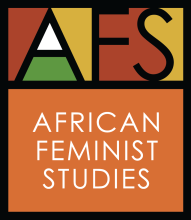Call for submissions, Feminist Africa: African Women Workers in a Changing World

Deadline for Submissions: 31st December 2021
All submissions and enquiries should be emailed to: info@feministafrica.net
Guest Editor: Akosua Keseboa Darkwah
African women have long been noted as active participants in the economic spheres of their respective countries. Across the continent, written records from the nineteenth century, make it clear that women across the continent, especially those in West Africa traded in a variety of items. Survey material from the early twentieth century such as the work of Baumann (1928) also highlights the fact that farming in Africa in general was as much a woman’s as a man’s activity. Other writers such as La Ray Denzer (2005) describe how West African women such as Constance Cummings-John parlayed skills and connections built in their careers as teachers and nurses to enter into politics in colonial West Africa.
Whether as workers in the informal sector or in traditional female occupations in the formal sector, there is a fairly large set of literature on African women as workers from the nineteenth, through the late twentieth-century. What is largely missing from this literature, however, is a critical engagement with the dramatic changes that have radically altered the character of “women’s work” as Africa has itself undergone rapid transformations. Africa’s involvement in contemporary global restructuring began with the adoption of structural adjustment programs in the 1980’s which was followed with political liberalization and multiparty electoral political systems in the 1990s. These transformations have constrained women’s income earning opportunities in a number of ways, but they have also opened up new spaces for women to engage economically. In the immediate aftermath of structural adjustment reforms, retrenchments led to decreased numbers of women in the formal civil service. The growth in the non-traditional sector, especially export agriculture opened up new spaces for women as farmhands on medium and large-scale plantations, opportunities that were not necessarily ideal. Additionally, the proportion of women reaching higher levels of education has improved. The numbers of women in professions have therefore grown beyond the few tokens in the past which could therefore potentially change the workplace cultures of these professional groups. Additionally, evidence from Ghana (Darkwah 2010) shows that younger women with higher education have less access to jobs that meet the basic requirements of decent work than their mothers and grandmothers did. This reality presents an opportunity to interrogate the options such women therefore have.
This special issue of Feminist Africa is devoted to the analysis of the ways in which African women’s lives as workers have been transformed over time. In thinking about transformations, we are interested in a wide range of changes that have occurred over the years including but not limited to changes in labour relations, changes in workplace policies, changes in gender segregation and segmentation in various places of work as well as changes in workplace cultures. We are particularly interested in articles that look at transformations in quintessentially feminine activities such as trading/farming; in male dominated fields such as the military; and how more innovative fields such as information technology might differ. We welcome review essays that seek to theorise these transformations as well as primary research that addresses key debates in the literature and combines critical readings of the available data with qualitative methods to give us insight into various aspects of African women’s lives as workers in the 21st century.
The closing date for full paper submissions is 31st December 2021.
Direct all enquiries and submissions to: info@feministafrica.net.
Articles may be submitted electronically via https://journals.ug.edu.gh/index.php/fa/index
Download the FA style guide at: https://feministafrica.net/
